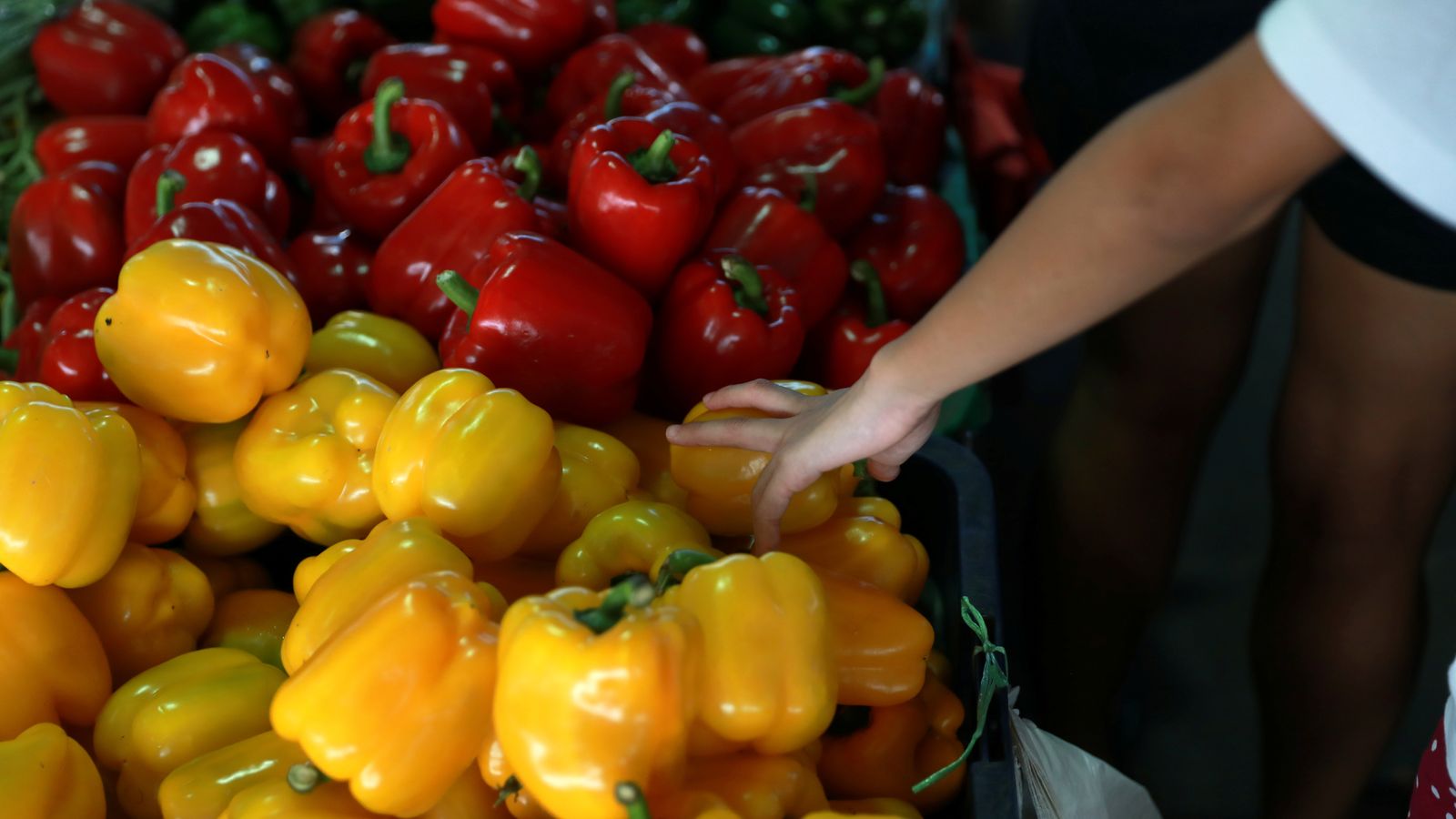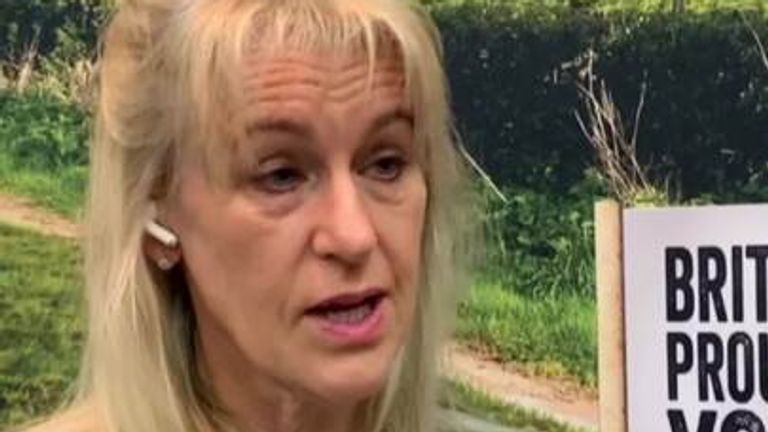Danger of tomato, cucumber and other vegetable rationing, NFU president warns
A variety of British vegetables, from tomatoes to cauliflower, risk being rationed this year as farmers struggle to meet energy costs, the head of the National Farmers’ Union (NFU) has warned.
Minette Batters, president of the England and Wales industry group, said the production of some British vegetables grown in lit, heated buildings, such as tomatoes and cucumbers, was already falling.
Many glasshouses are standing empty or even being mothballed, she said.
“Everybody wants to avoid rationing, effectively, which is what we saw with eggs in December,” Ms Batters said in an interview in Birmingham on Tuesday.
Cost of living latest: Four-day week breakthrough
“But I think there are going to be challenges on availability of some food items,” including peppers and other salad vegetables grown indoors, and “field veg” such as potatoes, cauliflower and purple sprouting broccoli could also be impacted, she said.
Ms Batters stressed that the “last thing anybody wants to do is to create a level of panic buying” and was hopeful rationing could be averted.
But this would require the government to extend support via the Energy and Trade Intensive Industries scheme to horticulture and poultry, some of farming’s most energy-dependent sectors, which are currently excluded, she said.
“This is, of course, all driven by the price of gas, which has come down, but is still three times higher than it was in 2019,” she added.
An existing energy support scheme comes to an end in April.
Government responds to rationing warning
Farming minister Mark Spencer refused to rule out rationing, but said he did not expect it.
“We acknowledge that there are huge pressures,” he said, responding to a question from Sky News during a news conference.
The problems are not unique to the UK but are hitting countries such as the Netherlands too, he added.
“I’m not saying that we’re going to see rationing. What I’m saying is we want to try and work with UK producers to try and produce as much food domestically as possible.”
Labour shortages, animal feed increases, inflation and supply chain disruption from the war in Ukraine are extra challenges, Ms Batters said, as is adjusting to Brexit changes.
Her warning comes as the British Retail Consortium (BRC) warned that tomatoes were running low in supermarkets including Tesco and Sainsbury’s due to “difficult weather conditions” in the south of Europe and northern Africa.
Asda on Tuesday placed purchase limits on some items of fruit and vegetables following these difficulties in the region.
In winter, Britain has typically imported around 90% of crops like cucumbers and tomatoes, but has been nearly
self-sufficient in the summer.
Ms Batters urged retailers to be “sympathetic to renegotiating contracts” with farmers “while we’ve got this extreme volatility”.
But Phil Pearson from APS Produce, the UK’s largest tomato grower, told Sky News at the conference that the rationing warning might be a “little bit of a red herring”.
He was confident supplies would bounce back in April, when warmer, sunnier weather will have started to reduce energy demands.
Read more:
Farmers paid to protect nature in dramatic overhaul of subsidies scheme
Fertiliser made from human faeces and urine is ‘safe’ to use on food crops, say scientists
Asda and Lidl restrict egg sales following supply disruption
As well as costs, water security is also a “massive issue,” for farming, she said. Last summer’s record heat and a prolonged drought, fuelled by climate change, reduced yields for crops like potatoes and barley.
We are “lucky” in the UK with a temperate climate, she said. But with extreme drought in agricultural areas like Portugal and Italy last year, and Italy already bracing for another year of drought, “globally, water security is becoming a massive issue”.
“That’s an even greater need for us to take all self-sufficiency seriously and be producing more of our fruit and vegetables here, which has been the ambition that we have held for a long time,” she said.
Watch the Daily Climate Show at 3.30pm Monday to Friday, and The Climate Show with Tom Heap on Saturday and Sunday at 3.30pm and 7.30pm.
All on Sky News, on the Sky News website and app, on YouTube and Twitter.
The show investigates how global warming is changing our landscape and highlights solutions to the crisis.
For all the latest business News Click Here


